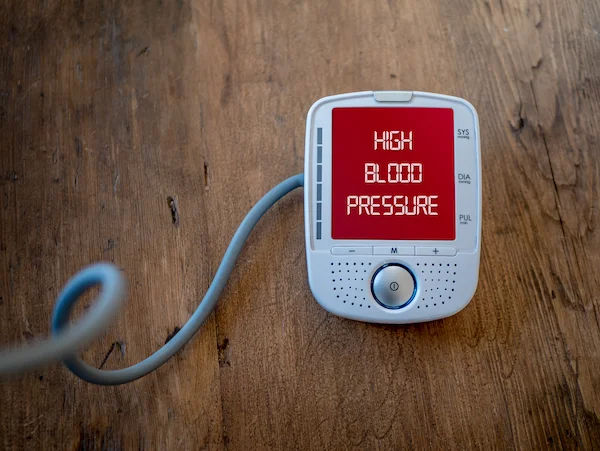Understanding Coronary Artery Calcium Score
Learn what a coronary artery calcium (CAC) score is, how it helps assess your heart disease risk, who should get tested, and how to interpret the results for better heart health management.

Written by Dr. Mohammed Kamran
Reviewed by Dr. Rohinipriyanka Pondugula MBBS
Last updated on 13th Jan, 2026

Introduction
Heart health is a crucial aspect of overall well-being, and understanding your risk of heart disease can help you take proactive steps to stay healthy. One useful tool doctors use to assess heart disease risk is the Coronary Artery Calcium (CAC) Score. If you’ve heard about this test or your doctor has recommended it, you might have questions. Let’s break it down in simple terms.
What Is a Coronary Artery Calcium Score?
The Coronary Artery Calcium (CAC) Score is a non-invasive imaging test that measures the amount of calcium deposits in the walls of your heart’s arteries. These deposits, called plaque, can build up over time due to cholesterol, inflammation, and other factors. A high calcium score indicates that plaque is present, which increases the risk of heart disease, heart attack, or stroke.
This test is usually done using a CT (Computed Tomography) scan, which takes detailed pictures of your heart. The scan is quick, painless, and does not require any injections or fasting.
Consult a Top Heart Specialist for the best advice
Why Is the CAC Score Important?
Your heart’s arteries (coronary arteries) supply oxygen-rich blood to your heart muscle. When plaque builds up inside these arteries, it can:
- Narrow the arteries, reducing blood flow to the heart.
- Harden the arteries, making them less flexible.
- Increase the risk of a blockage, leading to a heart attack.
The CAC score helps doctors:
- Assess your heart disease risk more accurately than traditional risk factors (like cholesterol levels or blood pressure).
- Guide treatment decisions—whether you need lifestyle changes, medications, or further tests.
- Motivate patients to take heart-healthy actions if they see a high score.
Who Should Get a CAC Score Test?
The CAC test is most helpful for middle-aged adults (40-75 years) who have intermediate risk of heart disease based on traditional risk factors like:
- High blood pressure
- High cholesterol
- Diabetes
- Family history of heart disease
- Smoking history
- Obesity or sedentary lifestyle
It is not usually recommended for:
- Young adults (under 40)—plaque buildup is rare at this age.
- People with very low or very high risk—the test may not change their treatment plan.
Your doctor can help decide if this test is right for you.
Understanding Your CAC Score Results
After the scan, you’ll receive a numerical score:
What Does a Zero Score Mean?
A zero score means:
- Excellent news! No detectable calcium means a very low risk of heart disease in the next 5-10 years.
- However, keep up healthy habits to maintain this status.
What If My Score Is High?
A high CAC score means:
- Don’t panic—this is a warning sign, not a prediction of an immediate heart attack.
- Your doctor may recommend:
- Lifestyle changes (diet, exercise, quitting smoking).
- Medications (statins, blood pressure control).
- Further tests (stress test, angiogram).
How Can I Improve My CAC Score?
While calcium deposits cannot be reversed, you can slow down further buildup and reduce heart disease risk by:
1. Eating a Heart-Healthy Diet
- More: Vegetables, fruits, whole grains, fish, nuts, olive oil.
- Less: Processed foods, sugary drinks, red meat, fried foods.
2. Staying Active
Aim for 150 minutes of moderate exercise per week (walking, swimming, cycling).
3. Managing Cholesterol & Blood Pressure
- If prescribed, take statins or blood pressure medications regularly.
- Monitor levels with your doctor.
4. Quitting Smoking
Smoking speeds up plaque buildup; quitting improves heart health at any age.
5. Managing Stress & Sleep
Chronic stress and poor sleep can worsen heart health; practice relaxation techniques.
Should I Get a CAC Test?
If you’re unsure about your heart disease risk, talk to your doctor. A CAC test can provide clarity and help tailor a prevention plan just for you.
Final Thoughts
Your heart health is in your hands. The CAC score is a powerful tool that gives you a clearer picture of your risk, helping you and your doctor make informed decisions. Whether your score is low or high, small lifestyle changes today can make a big difference tomorrow.
Consult a Top Heart Specialist for the best advice
Consult a Top Heart Specialist for the best advice

Dr. Anand Ravi
General Physician
2 Years • MBBS
Bengaluru
PRESTIGE SHANTHINIKETAN - SOCIETY CLINIC, Bengaluru

Dr. Bhethala Sharan Prakash
General Physician/ Internal Medicine Specialist
5 Years • MBBS MD
Bengaluru
PRESTIGE SHANTHINIKETAN - SOCIETY CLINIC, Bengaluru

Dr. Dayanashre N
General Physician
3 Years • MBBS
Bengaluru
PRESTIGE SHANTHINIKETAN - SOCIETY CLINIC, Bengaluru

Dr. Zulkarnain
General Physician
2 Years • MBBS, PGDM, FFM
Bengaluru
PRESTIGE SHANTHINIKETAN - SOCIETY CLINIC, Bengaluru

Dr. E Prabhakar Sastry
General Physician/ Internal Medicine Specialist
40 Years • MD(Internal Medicine)
Manikonda Jagir
Apollo Clinic, Manikonda, Manikonda Jagir
(175+ Patients)
Consult a Top Heart Specialist for the best advice

Dr. Anand Ravi
General Physician
2 Years • MBBS
Bengaluru
PRESTIGE SHANTHINIKETAN - SOCIETY CLINIC, Bengaluru

Dr. Bhethala Sharan Prakash
General Physician/ Internal Medicine Specialist
5 Years • MBBS MD
Bengaluru
PRESTIGE SHANTHINIKETAN - SOCIETY CLINIC, Bengaluru

Dr. Dayanashre N
General Physician
3 Years • MBBS
Bengaluru
PRESTIGE SHANTHINIKETAN - SOCIETY CLINIC, Bengaluru

Dr. Zulkarnain
General Physician
2 Years • MBBS, PGDM, FFM
Bengaluru
PRESTIGE SHANTHINIKETAN - SOCIETY CLINIC, Bengaluru

Dr. E Prabhakar Sastry
General Physician/ Internal Medicine Specialist
40 Years • MD(Internal Medicine)
Manikonda Jagir
Apollo Clinic, Manikonda, Manikonda Jagir
(175+ Patients)




